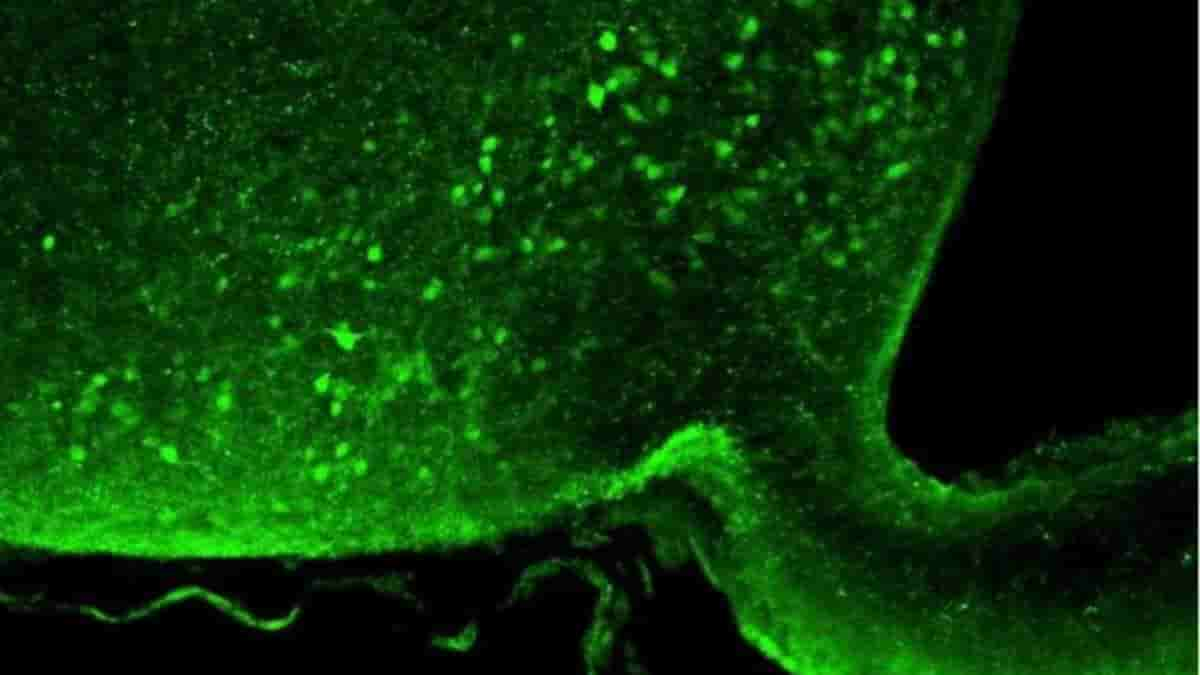A group of nerve cells in the brains of mice promotes the consumption of high-fat food, researchers at the Max Planck Institute for Metabolism Research in Cologne have discovered. If these so-called nociceptin neurons in the hypothalamus are activated, the animals start to eat more.
“Just three days of a high-fat diet feeding were sufficient to detect increased activity of nociceptin neurons in a specific region of the brain, the arcuate nucleus of the hypothalamus,”
says Alexander Jais, first author of the study.
Nociceptin Neurons
Since the 1980s, there has been a worldwide increase in obesity and associated diseases such as diabetes mellitus and cardiovascular disease.
Researchers at the Max Planck Institute for Metabolism Research from the laboratory of Jens Brüning have used mice in animal studies to investigate which nerve cells control the overeating of high-calorie, energy dense food. For this purpose, the animals were fed a high-fat diet and examined afterwards.
In a set of experiments, nociceptin neurons of mice were selectively removed from the arcuate nucleus of the hypothalamus. As a result, these mice no longer “over-consumed” the high-fat diet.
The intake of their normal food was not affected. The nociceptin neurons can, therefore specifically control the intake of high-fat food.
Excessive Food Intake
Following up these findings, the researchers used genetically modified mice in which the activity of the nociceptin neurons in the hypothalamus could be controlled by optogenetic stimulation.
“The activation of these brain cells led to an excessive food intake of the animals,” Jais explains. “The activation of nociceptin neurons inhibits certain neurons which regulate satiety and therefore the animals ingest more food.”
Consumption of energy-dense food leads to a disruption of energy balance and to an increased intake of calories.
“We are constantly surrounded by cheap, palatable, energy-dense foods and our brains are wired in such a way that we particularly prefer these foods. It is still not known why some people manage to eat only as much as they need and others do not. The individual activity of nociceptin neurons could be an important piece to the puzzle. Their activity promotes overconsumption, making them an attractive target for the prevention and treatment of obesity.
The current COVID-19 pandemic reminds us that obesity and associated metabolic diseases, such as diabetes, are risk factors and therefore, a better understanding of the central nervous system control of food intake is urgently needed, with particular emphasis on high-calorie, fat- and carbohydrate-rich foods,”
says Jais.
Reference:
- Jais et al., PNOCARC Neurons Promote Hyperphagia and Obesity upon High-Fat-Diet Feeding, Neuron (2020), doi: 10.1016/j.neuron.2020.03.022
Top Image: Nociceptin neurons in the arcuate nucleus of the hypothalamus. Credit: MPI f. Metabolism Research
Last Updated on December 4, 2023
